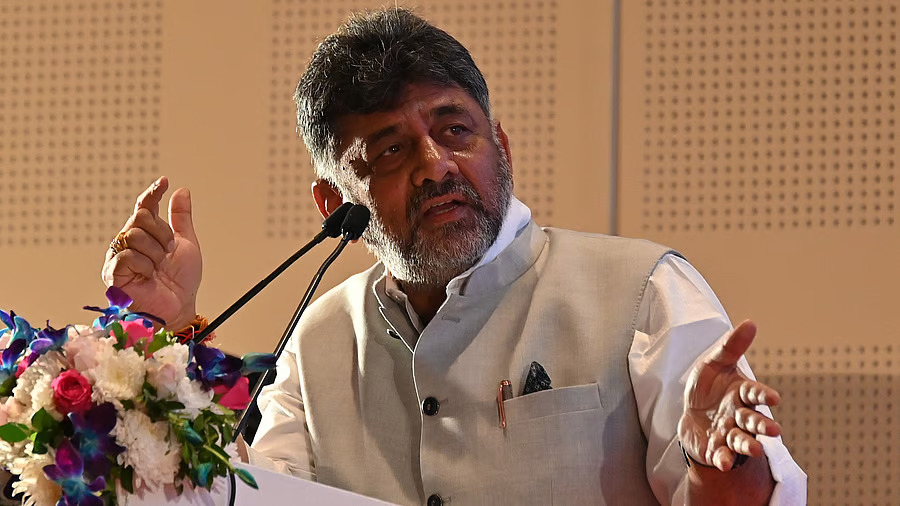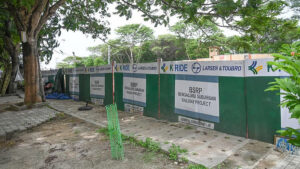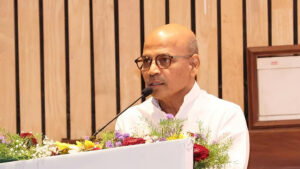In a bold and highly publicized statement, Deputy Chief Minister D.K. Shivakumar (D.K.S.) declared war on what he described as the “garbage mafia” that has long plagued Bengaluru’s waste management ecosystem. His reaction followed a recent High Court stay on waste collection tenders floated by the Bruhat Bengaluru Mahanagara Palike (BBMP), the city’s civic authority. The legal stay, meant to address procedural irregularities and concerns about fairness, has inadvertently cast a spotlight on deep-rooted systemic rot, contractor politics, and the urgent need for reform in how India’s tech capital manages its waste.
D.K. Shivakumar’s vow to “throw away the garbage mafia” is not just a rhetorical flourish—it reflects the growing frustration of both the government and the public with an outdated and often corrupt sanitation framework that is no longer capable of serving a city of over 13 million people.
This blog explores the larger narrative around Bengaluru’s garbage crisis: the background of the tender issue, the political undertones of the “garbage mafia,” the city’s struggle with solid waste management, and the path forward.
The Tender Turmoil: What Triggered the Controversy?
BBMP had recently floated tenders worth hundreds of crores to streamline and restructure solid waste collection and disposal across the city. However, these tenders were challenged in the Karnataka High Court by various groups, alleging:
-
Lack of transparency in bidding processes.
-
Favoritism toward certain pre-qualified contractors.
-
Violations of procurement norms and technical criteria.
-
Lack of opportunity for local entrepreneurs or smaller players.
As a result, the court stayed the tender process, halting what was meant to be a major overhaul of Bengaluru’s garbage collection framework. The halt has left the city in a limbo, affecting not only future operations but also exposing the murky world of contracts and kickbacks in civic services.
The “Garbage Mafia”: More Than Just a Phrase
The term “garbage mafia” has become a catch-all label for the network of corrupt contractors, middlemen, and sometimes even insiders within the civic system who exploit Bengaluru’s decentralized waste collection for profit. This network is accused of:
-
Manipulating tenders to ensure the same few contractors win over and over.
-
Inflating operational costs while underdelivering on cleanliness targets.
-
Neglecting segregation norms and dumping mixed waste in illegal landfills.
-
Underpaying or exploiting sanitation workers while siphoning off funds.
In essence, this mafia thrives on the chaos of an under-regulated and loophole-ridden waste management system.
Deputy CM D.K. Shivakumar’s outburst, therefore, resonates with citizen sentiment. His promise to root out this network is being viewed as a political and administrative turning point, though many are rightly cautious about whether action will match rhetoric.
Bengaluru’s Garbage Woes: A Historical Burden
The current crisis is not a recent development. Bengaluru’s solid waste management (SWM) challenges have been mounting for years:
-
The city generates over 6,000 to 7,000 metric tonnes of waste per day.
-
Despite court orders, segregation at source remains below 50% in most wards.
-
Illegal landfills and black spots continue to sprout across peri-urban areas.
-
Waste-to-energy plants and composting units either run below capacity or are shut down due to technical issues or local protests.
-
BBMP has been accused of inefficiency and lack of long-term planning, relying on contract-based temporary solutions rather than building institutional capabilities.
Citizens have long complained of irregular collection, overflowing bins, and poor grievance redressal, making the garbage issue one of the biggest pain points in everyday urban life.
Political High Stakes: Waste as a Governance Litmus Test
Waste management is no longer just a civic issue—it’s now a political battleground. For the ruling coalition, which has promised better urban infrastructure and cleaner cities, fixing Bengaluru’s garbage problem is critical for public trust.
The ongoing tender saga and court intervention also reveal the fractured relationship between bureaucracy, political will, and private contractors. The Deputy CM’s assertive stance signals that the state government is keen to shift the narrative from reactive firefighting to structural reform.
However, the deeper question remains: Can entrenched vested interests be dismantled? Can the city really overcome years of inertia, mismanagement, and corruption?
Reforming Waste Management: What Needs to Be Done
If D.K. Shivakumar’s promise to “throw away the garbage mafia” is to translate into meaningful action, Bengaluru must adopt a multi-pronged approach rooted in transparency, sustainability, and community participation.
1. Transparent Tendering Process
-
Create digital dashboards that publicly track bidding, contractor performance, and fund utilization.
-
Involve citizen groups and urban planners in designing tender terms and scoring metrics.
2. Decentralized Waste Processing
-
Promote ward-level dry waste collection centers and community composting.
-
Invest in micro-composting and bio-methanation plants to reduce landfill pressure.
3. Strengthening BBMP’s Internal Capacity
-
Reduce over-reliance on private contractors by building trained in-house teams.
-
Enhance monitoring tools using GPS, IoT sensors, and real-time dashboards for waste trucks and collection points.
4. Legal and Financial Penalties for Non-Compliance
-
Impose heavy fines on contractors for missed collections, illegal dumping, or non-segregation.
-
Enforce citizens’ responsibility under the SWM Rules 2016 for segregation and littering.
5. Citizen Awareness and Inclusion
-
Conduct behavior change campaigns through RWAs, schools, and workplaces.
-
Recognize and incentivize “green wards” and waste-wise communities.
Voices from the Ground
Public reaction to the Deputy CM’s comments has been mixed:
“It’s refreshing to see a political leader speak up so strongly. But words need to be backed by audits, arrests, and policy overhaul,” said an urban planner from Indiranagar.
“The garbage mafia has been thriving for years. We want clear solutions, not just press statements,” echoed a resident welfare association member from Rajajinagar.
This cautious optimism reflects both hope and past disappointment—a reminder that good governance must be sustained, not just announced.
Conclusion: Cleaning More Than Just Streets
The garbage crisis in Bengaluru is not just about cleanliness—it’s about transparency, accountability, environmental justice, and public health. D.K. Shivakumar’s declaration to dismantle the garbage mafia has set the stage for what could be one of the most transformative reforms in the city’s civic history.
But success will depend on more than political will. It will require legal backing, citizen involvement, robust systems, and honest enforcement. If done right, Bengaluru could not only shed its garbage burden but become a model for smart, ethical urban sanitation for cities across India.
Our Services – FACTS Transcripts
We at FACTS Transcripts assist in various services, including:
- Mark Sheet Transcripts
- E-Transcripts
- Duplicate Mark Sheets & Degree Certificates
- Medium of Instructions Certificates
- Attestations
- HRD Attestation / Apostille Services
- ECA (Educational Credentials Assessment)
Trusted by leading global verification organizations, including WES, IQAS, PEBC, NDEB, NASBA, CAPR, NZQA, ICAS, NCESS, ICES, ECE, eduPASS, ACEI, GCEUS, Comparative Education Services, NNAS, NCA, SAQA, QMAS, FORAC, Australian Pharmacy Council, and more.
FACTS Transcripts – The preferred choice for university document verification worldwide. We ensure a hassle-free process for obtaining your transcripts.










